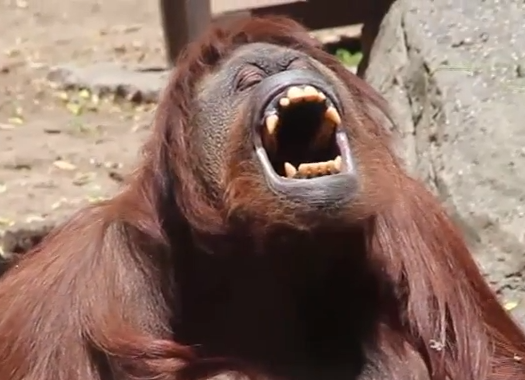Despite common perceptions, animal rights movements have existed since well before the hippie era.
Many notable people in history (George Bernard Shaw and Percy Shelley, for instance) opposed the eating and exploitation of animals. Such efforts spawned groups that are still around today. Indeed, the first such society, The Vegetarian Society, was established in England back in 1847 and is still very active today.
However, even many people who eschew meat and animal products for ethical reasons shy away from the question of whether animals should have the same rights as humans.
Recently, an Argentinian court has ruled that they do…or at least that one does.
Sandra, a 29 year old Sumatran orangutan who has spent 20 years in the Buenos Aires zoo, has been officially recognized as a “non-human person with some basic human rights.”
The lawyers who represented Sandra argued that as a great ape, she was capable of feeling frustration and emotional distress as a result of being in the zoo. They further argued that she was aware of her situation and had a perception of time.
While similar cases have been forward—including two recent ones in New York—this is the first time that a court has ruled in favor of the animal plaintiff.
A lawyer associated with the case told a Buenos Aires newspaper: This opens the way not only for other Great Apes, but also for other sentient beings which are unfairly and arbitrarily deprived of their liberty in zoos, circuses, water parks and scientific laboratories.
Indeed.
It will be interesting to see what if any impact this ruling has not just in Argentina, but around the world as well.
Love elephant and want to go steady?
Sign up for our (curated) daily and weekly newsletters!
Author: Kimberly Lo
Editor: Renee Picard
Image: Screenshot from Youtube video











Read 1 comment and reply